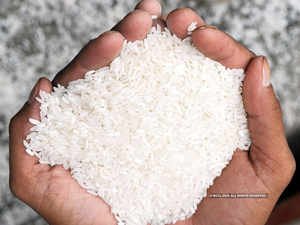
CHANDIGARH: Basmati rice exporters said the sharp increase of about 30% in freight rates of shipping containers in the past few weeks had hit them hard, even as they jostled to deliver consignments from the largest rice exporting country to overseas destinations including the United States and Europe. The increase in logistics overheads is set to shrink margins even as foreign payments gets delayed in the pandemic-hit global market, feels exporters.
Rice exporters have written to Prime Minister Narendra Modi, seeking help in streamlining the distortions in international logistics and domestic inland transportations to ensure cereal supply to a pandemic-hit world. India exports rice to more than 90 countries and the figure for total basmati shipments stood at $ 3398 million during April-January 2019-20. The figure was $4712 million in 2018-19.
“Shipping containers’ freight rates have increased 20-30% in the past four weeks, and it has increased cost overheads at a time payments in global trade are prone to delays,” said Ashok Sethi, director, Punjab Rice Millers Exporters Association. He said the association has requested the PM to extend interest subvention on bank loans in case of delayed payments by foreign buyers due to Covid-19.
Although the global demand for Indian premium rice has recorded an increase in the past few weeks, exporters are wary of fluctuations in currency that would be exaggerated in case of late payments. “Bank penalties are heavy in such cases and have hit trade hard in recent years,” said Arvinder Pal Singh, president, Punjab Rice Millers Exporters Association. He said the industry is expected to face cost overheads also due to labour shortage in the wake of measures taken to contain the spread of the viral disease.
Leading basmati rice exporters in Punjab, including Lal Mahal, Supple Tek Industry and DD International, said increasing overheads threatened to shrink their margins despite the robust demand.
A senior executive of a leading shipping company said freights had risen as the industry looked to bridge the dent in business caused by the steep fall in shipments from China. “High cost of cleaner fuel and tighter allocation of space due to increase in consignments from India are among factors that led to an increase in freight charges in recent weeks,” said the executive, who did not wish to be identified.
He said the availability of additional open space in the past due to high shipments from China had kept freight rates low for Indian exporters. “Freight rates are up 12-25% in the past three weeks depending on destination,” he said.
Source: indiatimes.com

